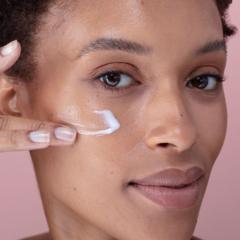Is Collagen the Secret to Youthful Skin: Drink It, Inject It, or Apply It?

Published: 2025-09-27 22:45:22 | Category: technology
Collagen is the most abundant protein in the human body, essential for maintaining the skin's elasticity and overall structural integrity. As we age, our natural collagen levels decrease, leading to wrinkles and sagging skin. While some people turn to collagen supplements to combat these effects, the scientific evidence surrounding their efficacy is still a topic of debate. This article discusses how to take collagen effectively, the types available, and what the latest research says about their benefits.
Last updated: 30 October 2023 (BST)
Key Takeaways
- Collagen is crucial for skin health, joint strength, and overall structural integrity.
- Collagen production decreases by approximately 1% per year after the age of 25.
- Marine collagen is recommended for oral consumption due to its higher type 1 collagen content.
- Vegan collagen alternatives do not contain actual collagen but rather amino acids.
- Using sunscreen and maintaining a healthy lifestyle may be more effective than supplements.
Understanding Collagen: What It Is and Why It Matters
Collagen is a protein that acts as a structural component in our skin, bones, tendons, and connective tissues. It is responsible for maintaining skin elasticity and hydration, contributing to a youthful appearance. As we age, collagen production slows, leading to visible signs of ageing such as wrinkles, fine lines, and loss of firmness. This decline can begin as early as our mid-20s, influenced by factors such as diet, stress, and sun exposure.
The Science Behind Collagen Supplements
Collagen supplements have surged in popularity, with many claiming that they can improve skin texture, hydration, and overall appearance. However, the science behind these claims is mixed. While anecdotal evidence is abundant, clinical studies often yield contrasting results. For instance, while some research indicates positive effects on skin hydration and elasticity, other studies funded by independent sources suggest minimal to no benefit.
How Do Collagen Supplements Work?
Collagen supplements usually come in two forms: hydrolysed collagen (collagen peptides) and gelatin. Hydrolysed collagen is broken down into smaller molecules, making it easier for the body to absorb. When ingested, these peptides are thought to stimulate collagen production in the skin. However, critics argue that the body may utilise these amino acids for various functions, not just for skin repair.
Types of Collagen Supplements
There are three primary types of collagen supplements available:
- Marine Collagen: Sourced from fish, this type is rich in type 1 collagen, which is beneficial for skin health.
- Bovine Collagen: Derived from cows, this type contains type 1 and type 3 collagen, supporting skin and joint health.
- Vegan Collagen: Not made from collagen itself, these products typically contain a blend of amino acids and vitamins aimed at boosting the body's natural collagen production.
How to Take Collagen: The Best Methods
There are various ways to incorporate collagen into your daily routine:
- Powdered Supplements: Mix collagen powder into smoothies, coffee, or soups for an easy addition to your diet.
- Gelatin: Use gelatin in recipes for jellies or desserts; it provides collagen in a tasty form.
- Liquids: Collagen shots or drinks are convenient options for those on the go.
Real-Life Experiences: Testimonials on Collagen Use
Individuals like Kimberlie Smith and Ali Watson have shared their experiences with collagen supplements. Kimberlie, a mother of three, reported visible improvements in her skin after using marine collagen gel daily. Similarly, Ali, who introduced collagen into her routine for joint health, noticed enhanced skin texture and appearance. Both women highlight the subjective nature of their experiences, suggesting that results can vary significantly.
The Skepticism of Experts
Despite positive personal accounts, dermatologists like Emma Wedgeworth express caution. She notes that while hydrolysed collagen may have a better absorption rate, there is still no guarantee that it will reach the skin effectively. Additionally, topical collagen creams are ineffective as they cannot penetrate the skin's deeper layers.
What About Vegan Collagen?
Vegan collagen products are popular among those who avoid animal products. However, experts point out that these supplements do not contain collagen at all; instead, they offer a mixture of amino acids that may support the body's collagen production. This makes them less effective compared to their animal-derived counterparts.
Cost Considerations and Value
With many collagen supplements retailing for around £60 per month, consumers must weigh the costs against perceived benefits. While some users report improvements, sceptics argue that lifestyle changes may yield better results without the financial burden. Professor Faisal Ali suggests that investing in sun protection, a balanced diet, and quitting smoking can greatly enhance skin health over the long term.
Alternative Methods for Boosting Collagen
If you're looking for ways to enhance your skin's elasticity without relying solely on supplements, consider the following methods:
- Microneedling: This technique uses tiny needles to stimulate collagen production through controlled skin injury.
- Laser Treatments: Laser therapy can encourage collagen growth and improve skin texture.
- Healthy Lifestyle Choices: A balanced diet rich in fruits, vegetables, and proteins can support overall skin health.
Balancing Expectations with Reality
It's essential to recognise that while collagen supplements may offer benefits, they are not a magic solution. Factors such as genetics, environmental exposure, and overall health play significant roles in the ageing process. Therefore, it is crucial to maintain realistic expectations when introducing collagen into your routine.
FAQs
What are the benefits of taking collagen supplements?
Collagen supplements are believed to improve skin elasticity, hydration, and overall appearance, as well as support joint health. However, results can vary greatly between individuals.
How long does it take to see results from collagen supplements?
Users may begin to notice improvements in skin texture and hydration within 4 to 12 weeks of consistent collagen supplementation, though this can differ based on individual factors.
Is marine collagen better than bovine collagen?
Marine collagen is often considered superior due to its higher concentration of type 1 collagen, which is most beneficial for skin health. However, both types offer valuable benefits.
Can I get collagen from my diet?
Yes, collagen can be obtained from consuming bone broth, chicken skin, fish, and certain fruits and vegetables that support collagen synthesis, such as oranges and leafy greens.
Are there any side effects of taking collagen supplements?
Collagen supplements are generally considered safe, but some individuals may experience digestive issues or allergic reactions, particularly with marine sources. It's advisable to consult a healthcare provider before starting any supplement.
In conclusion, while collagen supplements may offer potential benefits, they should not be seen as a cure-all for skin ageing. A comprehensive approach, including sun protection, a balanced diet, and possibly professional treatments, may yield better long-term results. What steps will you take today to support your skin health? #Collagen #HealthySkin #AntiAging



